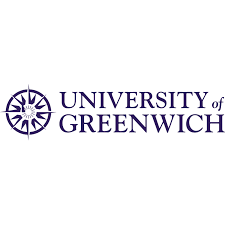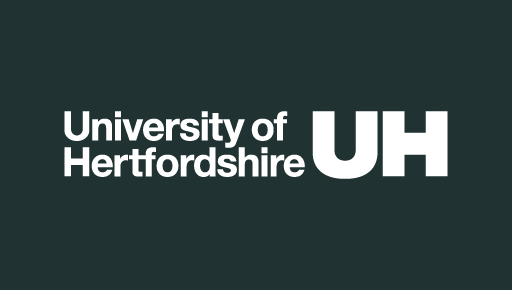Investment Banking and Finance: Your Gateway to Global Financial Careers
Embark on a transformative journey in the dynamic world of finance with our Investment Banking and Finance course, specially curated for Indian students aspiring to study abroad. This program equips you with the essential knowledge and skills to thrive in investment banking, asset management, and corporate finance. As India’s economy booms and integrates with global markets, understanding international finance is crucial for ambitious professionals. Whether you're from Mumbai's bustling financial hubs or emerging cities like Bangalore, this course bridges the gap between Indian financial practices and global standards.
Investment banking isn't just about numbers; it's about shaping economies, advising on mergers, and driving innovation. For Indian students, studying abroad in this field opens doors to prestigious firms like Goldman Sachs, JPMorgan, and HSBC, while enhancing your employability back home in institutions like HDFC or ICICI. With rising demand for skilled financiers in India's fintech sector and abroad, this course positions you at the forefront of opportunity.
Course Overview
The Investment Banking and Finance program is typically a one- to two-year master's degree, offered at top universities in the USA, UK, Canada, and Australia. It combines theoretical foundations with practical applications, including case studies, simulations, and internships. You'll learn to analyze financial markets, value companies, and manage risks in a volatile global economy.
Core focus areas include:
- Financial Markets and Instruments: Understanding stocks, bonds, derivatives, and emerging assets like cryptocurrencies.
- Corporate Finance: Capital budgeting, dividend policies, and merger strategies.
- Investment Analysis: Portfolio management, valuation techniques, and ethical investing.
- Regulatory Frameworks: Navigating international regulations like Basel III and SEBI guidelines for Indian contexts.
This course is ideal for graduates in commerce, economics, or engineering from Indian universities like IITs, IIMs, or Delhi University. It emphasizes real-world relevance, with modules on sustainable finance and ESG (Environmental, Social, Governance) investing, aligning with global trends and India's green economy push.
Detailed Curriculum
The curriculum is structured progressively, starting with fundamentals and advancing to specialized topics. Here's a breakdown of key modules, based on standard programs at leading institutions:
| Module | Description | Duration | Key Learning Outcomes |
|---|---|---|---|
| Financial Accounting and Reporting | Explore IFRS and GAAP standards, financial statement analysis, and auditing practices. | 3 months | Interpret balance sheets, income statements, and cash flows; prepare compliant reports. |
| Investment Banking Principles | Cover M&A processes, IPOs, underwriting, and deal structuring. | 4 months | Conduct due diligence, pitch deals, and model financial transactions. |
| Quantitative Finance | Learn econometric modeling, risk assessment using VaR, and algorithmic trading basics. | 3 months | Build financial models in Excel, Python, or R; forecast market trends. |
| International Finance and Economics | Study exchange rates, global trade, and macroeconomic policies affecting India and emerging markets. | 3 months | Analyze currency fluctuations; advise on cross-border investments. |
| Asset Management and Portfolio Theory | Dive into modern portfolio theory, hedge funds, and alternative investments. | 4 months | Optimize portfolios for risk-return balance; evaluate mutual funds and ETFs. |
| Ethics, Compliance, and Fintech | Address anti-money laundering, blockchain in finance, and digital banking innovations. | 2 months | Navigate ethical dilemmas; integrate AI and big data in financial decision-making. |
Electives may include Private Equity and Venture Capital or Behavioral Finance, allowing customization based on your interests. Hands-on projects, such as simulating a takeover bid or trading on virtual platforms, ensure you apply concepts practically. For Indian students, many programs incorporate case studies from the Asian financial crisis or India's 1991 liberalization to provide cultural relevance.
Skills You'll Gain
By the end of the course, you'll acquire a robust skill set tailored for the competitive finance industry:
- Analytical Proficiency: Master data interpretation and financial modeling to make data-driven decisions.
- Strategic Thinking: Develop abilities to evaluate business opportunities and risks in global contexts.
- Communication Skills: Hone presentation and negotiation techniques for client pitches and boardroom discussions.
- Technical Expertise: Gain proficiency in tools like Bloomberg terminals, MATLAB, and SQL for market analysis.
- Global Perspective: Understand cultural nuances in finance, especially bridging Indian and Western markets.
- Leadership and Ethics: Learn to lead teams ethically, focusing on sustainable and inclusive financial practices.
These skills not only prepare you for certifications like CFA or FRM but also boost your resume for top recruiters.
Career Opportunities
Graduates of Investment Banking and Finance programs enjoy lucrative careers worldwide. In investment banking, roles like analyst or associate at bulge-bracket firms offer starting salaries of $100,000–$150,000 USD annually in the US, with bonuses pushing totals higher. In the UK or Canada, expect £50,000–£80,000 GBP or CAD 90,000–120,000.
For Indian students, returning home opens doors to high-paying jobs in Mumbai's Bandra Kurla Complex or Gurgaon's financial district. Positions at firms like Kotak Mahindra or Axis Bank can start at ₹15–25 lakhs per annum, rising rapidly with experience. Global exposure enhances prospects in India's growing NBFC and PE sectors.
Key career paths include:
- Investment Banker: Advise on deals; average salary: $120,000 USD globally.
- Financial Analyst: Research and forecast; ₹10–20 lakhs in India.
- Portfolio Manager: Oversee investments; high growth in mutual funds.
- Risk Manager: Mitigate financial risks; demand surging post-COVID.
- Fintech Specialist: Innovate with digital finance; booming in India's startup ecosystem.
Many alumni secure roles at Big Four consultancies or venture into entrepreneurship, founding fintech startups. The program's network, including alumni events and career fairs, facilitates placements with 90%+ employment rates within six months.
Eligibility and Entry Requirements
To enroll, Indian students typically need:
- A bachelor's degree in finance, economics, business, or related fields with a minimum GPA of 3.0/4.0 (or equivalent, around 60–70% in Indian grading).
- GMAT/GRE scores: Aim for 650+ on GMAT for competitive programs.
- English proficiency: IELTS 6.5–7.0 or TOEFL 90–100.
- Work experience: 1–2 years preferred for MBA-integrated programs, though freshers are welcome for MSc tracks.
- Statement of Purpose (SOP) and Letters of Recommendation (LORs): Highlight your passion for finance and Indian market insights.
Scholarships like Fulbright for US or Chevening for UK are accessible; check for India-specific aids from universities.
Why Study Investment Banking and Finance Abroad?
For Indian students, studying abroad in this field offers unparalleled advantages. Access world-class faculty and resources unavailable in India, such as live trading floors and industry partnerships. Gain international exposure, networking with diverse peers from Europe, Asia, and the Americas, which is vital for cross-border careers.
Post-study work visas (e.g., OPT in US, PSW in UK) allow 1–3 years of experience abroad, boosting your profile. Amid India's digital finance revolution—think UPI and RBI's fintech sandbox—global credentials make you indispensable. Moreover, curricula emphasize diversity, preparing you for inclusive workplaces. Ultimately, it's an investment in your future, with ROI through higher salaries and leadership roles.
Top Universities and Programs
Consider these renowned programs:
- USA: MSc Finance at MIT Sloan or NYU Stern—focus on quant finance.
- UK: MSc Investment Banking at London Business School—strong M&A emphasis.
- Canada: Master of Finance at Rotman (University of Toronto)—affordable with work options.
- Australia: Master of Applied Finance at University of Sydney—proximity and scholarships for Indians.
Tuition ranges from $40,000–$70,000 USD annually; research funding opportunities early.
Application Tips for Indian Students
Start early: Deadlines are November–March. Tailor your SOP to link Indian experiences (e.g., interning at a local bank) with program goals. Prepare for interviews by practicing finance case studies. Use platforms like our study abroad portal for free counseling. Visa success hinges on strong financial proof—show ties to India to return post-study.
With dedication, this course can propel you from a student in India to a global finance leader. Begin your application today and unlock a world of possibilities!






